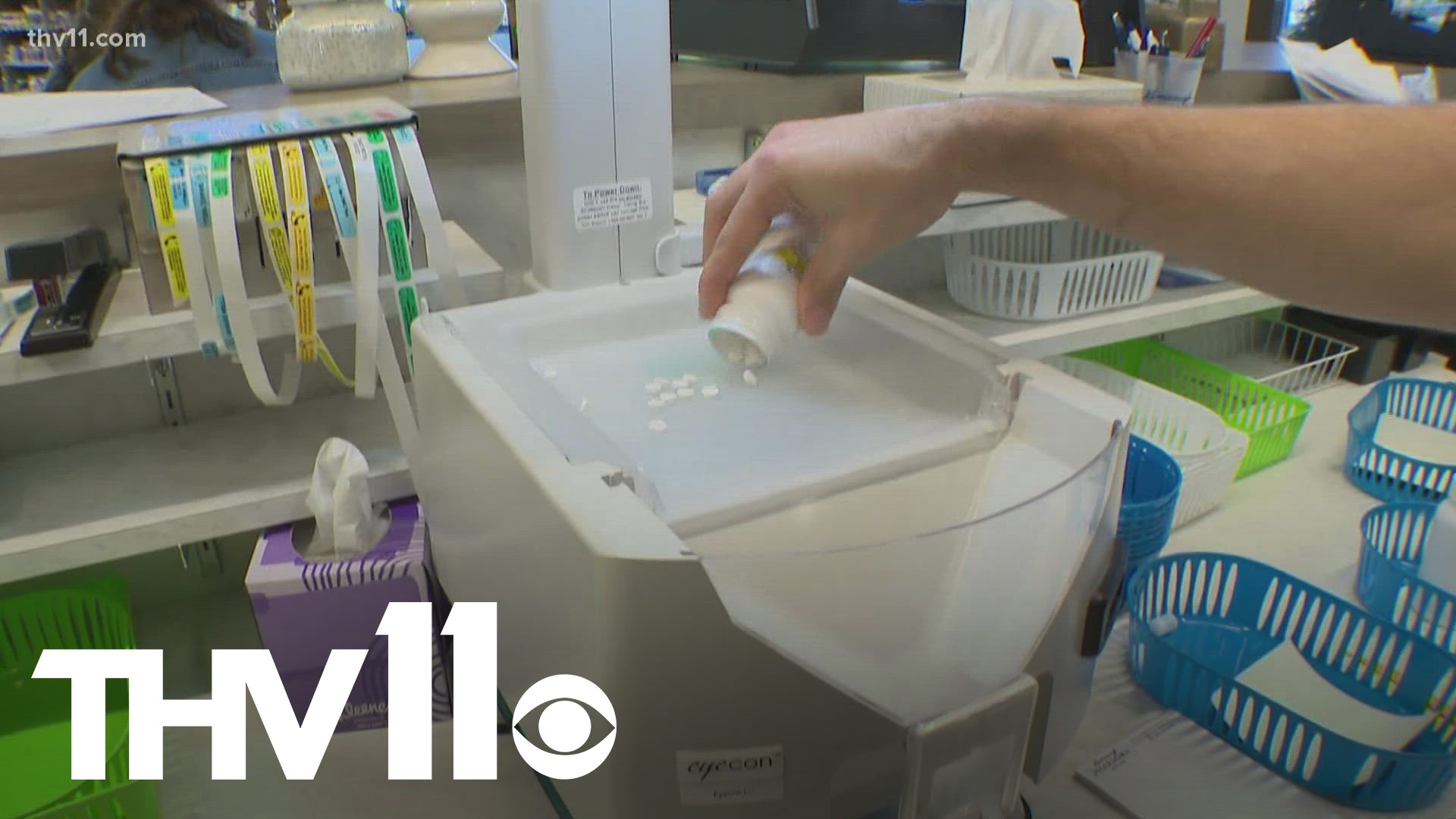LITTLE ROCK, Ark. — The devastating opioid crisis in Arkansas is something that we've continued to follow for some time now.
According to the Drug Enforcement Administration (DEA), Arkansas is one of the top states in the country for the of number of opiate medications prescribed.
This is especially impactful as the CDC has reported that in 2020 alone, 91,799 Americans died from a drug overdose. Of those, it's reported that 75% involved an opioid.
Recovery is the goal when facing an opioid use disorder. It was declared a nationwide Public Health Emergency in 2017.
Arkansan Randy Wood knows firsthand just how quickly a chemical dependence to these highly addictive drugs can happen.
Wood quit taking the opioid medication and shared how challenging that journey could be for those trying to stop.
“It felt like my skin would just try to crawl off my body." Wood said of the sensation while quitting.
Wood was prescribed hydrocodone after an injury years ago. He shared how much he enjoyed the feeling of the drug.
“There was something about where I was emotionally, or spiritually, or whatever at [this] time in my life. So that really caused me to enjoy the painkillers," he said.
Wood said that he tried several times to stop taking the opioid, but it never ended with any success. That's until an acquaintance told him about the Center for Addiction Services and Treatment at UAMS.
Wood started the program and was prescribed a medication called Suboxone, also known as buprenorphine. Some are even calling it "miracle medicine."
According to psychiatrist Dr. Michael Mancino, the director of the treatment center, the medication gives patient's relief from the crippling withdrawal symptoms.
Wishing to bring awareness to the opioid epidemic in the Natural State, Arkansas PBS commissioned a documentary by filmmaker Nathan Willis.
The film, which is called "Seven Days, the Opioid Crisis in Arkansas," documents the haunting realities of the opioid issue.
Dr. Mancino is also in that film and said the documentary depicts how quickly a user can become dependent on an opioid.
"There's evidence that a prescription for as short as seven days will increase the likelihood significantly that the person is still on opiates in a year," Mancino said.
As a treatment specialist, Dr. Mancino said there are numerous pathways to recovery based on the patient's individual needs.
Some may be instructed to drive to a methadone clinic multiple times a week to receive medication, but Arkansas has only a handful of such clinics in the entire state.
Dr. Mancino said he often sees the path to recovery begin virtually overnight through the administration of buprenorphine. The FDA approved buprenorphine in 2002 for the treatment of opioid substance disorder.
"Suboxone or buprenorphine is placed under the tongue by the patient and allowed to absorb and then it goes into the bloodstream, to the brain," Dr. Mancino said. "It opens the receptor partway, keeping the patient from having withdrawal and keeping the patient, more importantly, from having cravings."
As for Wood, he was able to reclaim his life.
“What I can remember is after about a week's time, thinking, I’m free. I am literally free from having to go chase down more hydrocodone,” Wood said.

